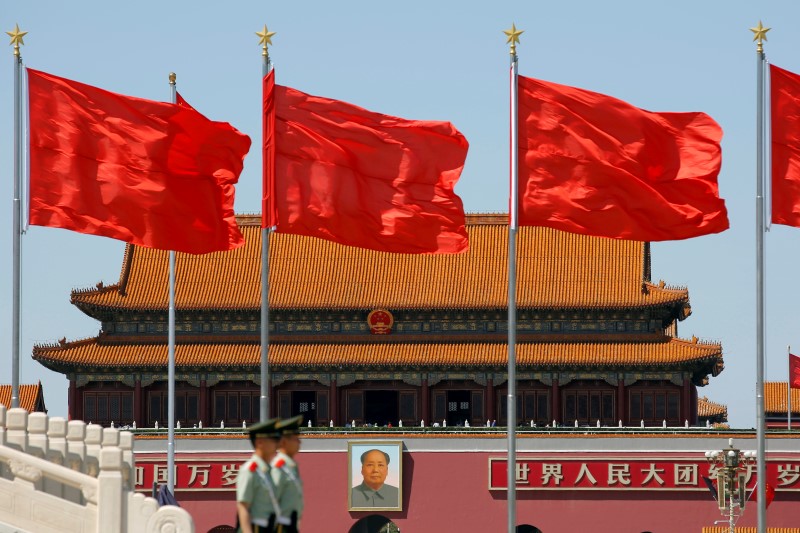BEIJING (Reuters) - China has bought back to the country one-third of those on its top 100 list of most wanted corruption suspects who have fled overseas, the ruling Communist Party's top graft buster said on Tuesday.
China issued the list in 2014 of people subject to an Interpol "red notice" - the closest instrument to an international arrest warrant.
Since then, 33 of those people have been caught, the Central Commission for Discipline Inspection said in a short statement.
Over the past two years since setting up a team to chase graft suspects across the globe, the body has returned to China 1,915 people from more than 70 countries, along with 7.47 billion yuan ($1.12 billion), it said.
It provided no other details.
China has been trying to get increased international cooperation to hunt down suspected corrupt officials who have fled overseas since President Xi Jinping began a war against deeply rooted graft almost four years ago.
Western countries, however, have been reluctant to help, or to sign extradition treaties, not wanting to send people back to a country where rights groups say mistreatment of criminal suspects remains a problem. They also complain China is unwilling to provide proof of their crimes.
China has instead turned to persuasion to get people back from countries like Canada and the United States, where many graft suspects have gone.
Separately, the commission said that G20 countries who have just finished a summit in the Chinese city of Hangzhou had agreed to set up a research center in China to look at the issue of returning corrupt officials and their assets.
The G20 communique said the research center would "be operated in line with international norms".
Deputy head of the commission's international cooperation department Cai Wei said the research center would help China's global efforts to fight corruption.
Despite China's public commitment to fighting graft internationally, China suspended an international anti-corruption task force earlier this year after taking over the G20 presidency because Chinese companies declined to participate.

($1 = 6.6799 Chinese yuan renminbi)